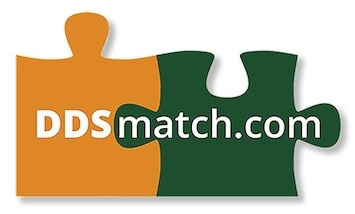Restrictive covenants, commonly referred to as “non-competes”, are important to protect your practice in two situations – when purchasing an existing dental practice and when hiring an associate dentist to work in your practice. In each of these situations there is a dentist other than you who knows your patients, your employees and everything about your practice, possibly as well or even better than you do. Restrictive covenants need to be part of the practice purchase agreement or the associate employment agreement to prevent that other dentist from harming your practice.
There are several types of restrictive covenants, and you may need several or all of these types to protect your practice:
- Covenants not to compete (“non-competes”) preclude the seller or former employee from practicing in a defined geographic area around the practice for a certain period of time.
- Patient non-solicitation covenants restrict the seller or former employee from soliciting patients of the practice. The agreement should define solicitation, typically to include direct contact with the patient (such as by mail, phone, email), but allowing indirect contact (such as general advertising). This allows a patient to choose a provider, but legitimately restricts the dentist from recruiting patients to leave the practice. Although not as clearly enforceable, some agreements also restrict the seller or former employee from providing services to the practice’s patients.
- Employee non-solicitation covenants restrict the seller or former employee from hiring employees or independent contractors away from the practice.
- Confidentiality provisions prohibit the disclosure of confidential information, such as patient lists and records.
To be enforceable, the restrictions must be reasonable and necessary to protect the practice. Generally, three aspects must be considered:
- Scope – The covenant must be clearly written and only restrict actions as necessary to protect the practice.
- Time – It is difficult to state a time period that will definitely be enforceable, but agreements often contain restrictions for between and one and three years. A reasonable time period likely is different for an employee (shorter) than for a seller (longer). Note that an employment agreement should restrict the employee both while working for the practice and for a period of time after employment ends.
- Geography – If a geographic area is part of the covenant, it must be reasonable, primarily focusing on where the practice’s patient base is located.
The dentist who is bound by the restrictive covenant also must receive “consideration” in exchange for agreeing to the restriction. In Indiana, an offer of employment (or continued employment, if the associate already works for the practice) is sufficient consideration for the covenant to be enforceable. In a practice sale, the purchase agreement should expressly allocate a portion of the purchase price to the covenant (consult your accountant or attorney to minimize the tax consequences of the allocation).
Because courts disfavor restraints on a person pursuing their profession, it is important that the covenant be tailored to the specific circumstances. The restrictive covenants must be included in a written practice purchase agreement, associate employment agreement or restrictive covenant agreement, and should be prepared by an attorney who understands the issues described above and the many other technical aspects of restrictive covenants, and who also has experience advising dental practices in legal matters.
[Author’s note: The material in this article is not intended to provide legal advice. Please consult an attorney for assistance.]
Brad Cohen is an attorney at Cohen Garelick & Glazier in Indianapolis who focuses his law practice on business planning and transactions and estate planning. Contact Brad at (317) 573-8888 or bcohen@cgglawfirm.com, or view Brad’s bio here: Attorney Bradley Cohen, Cohen Garelick & Glazier, Indianapolis, Indiana

